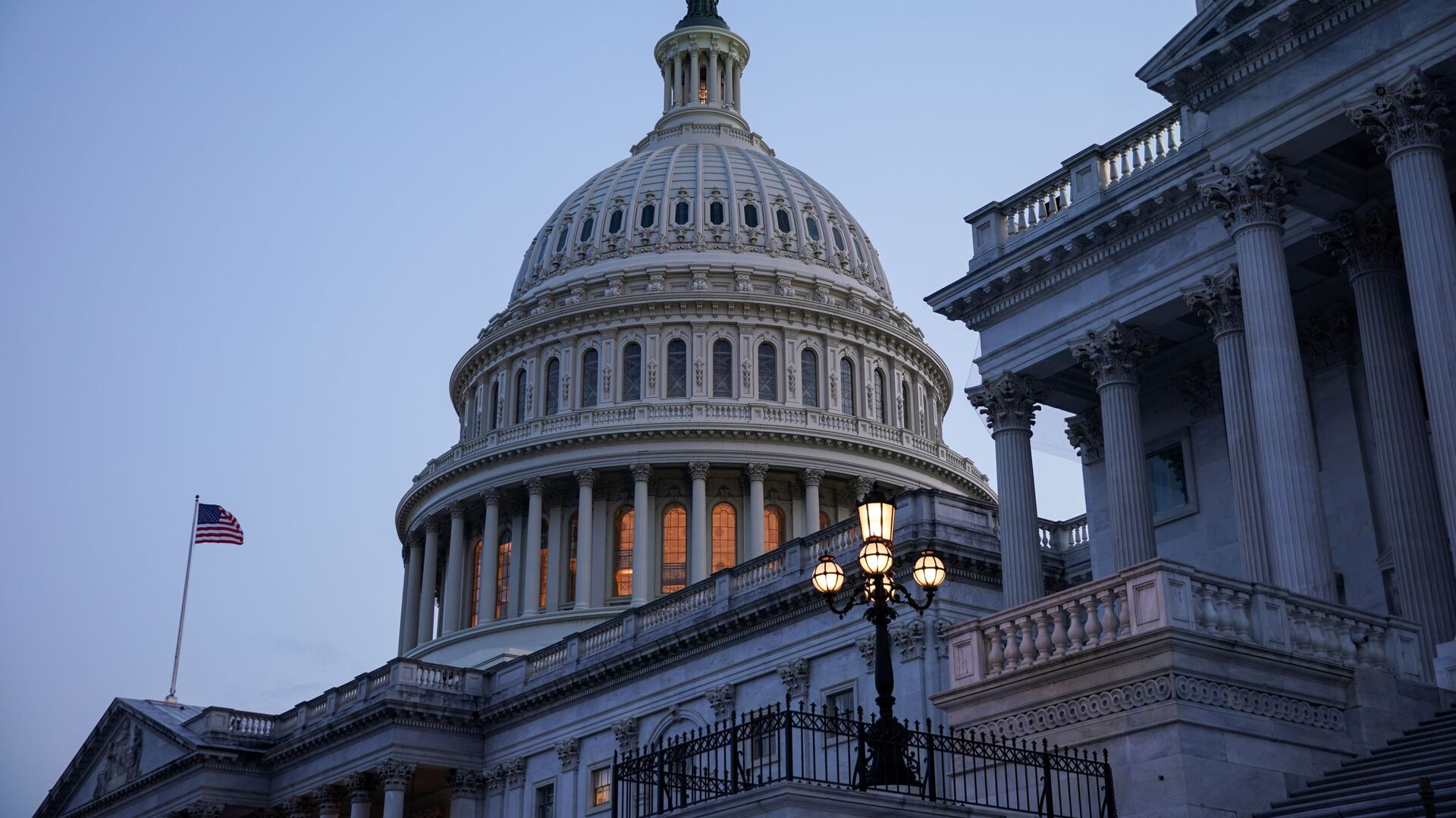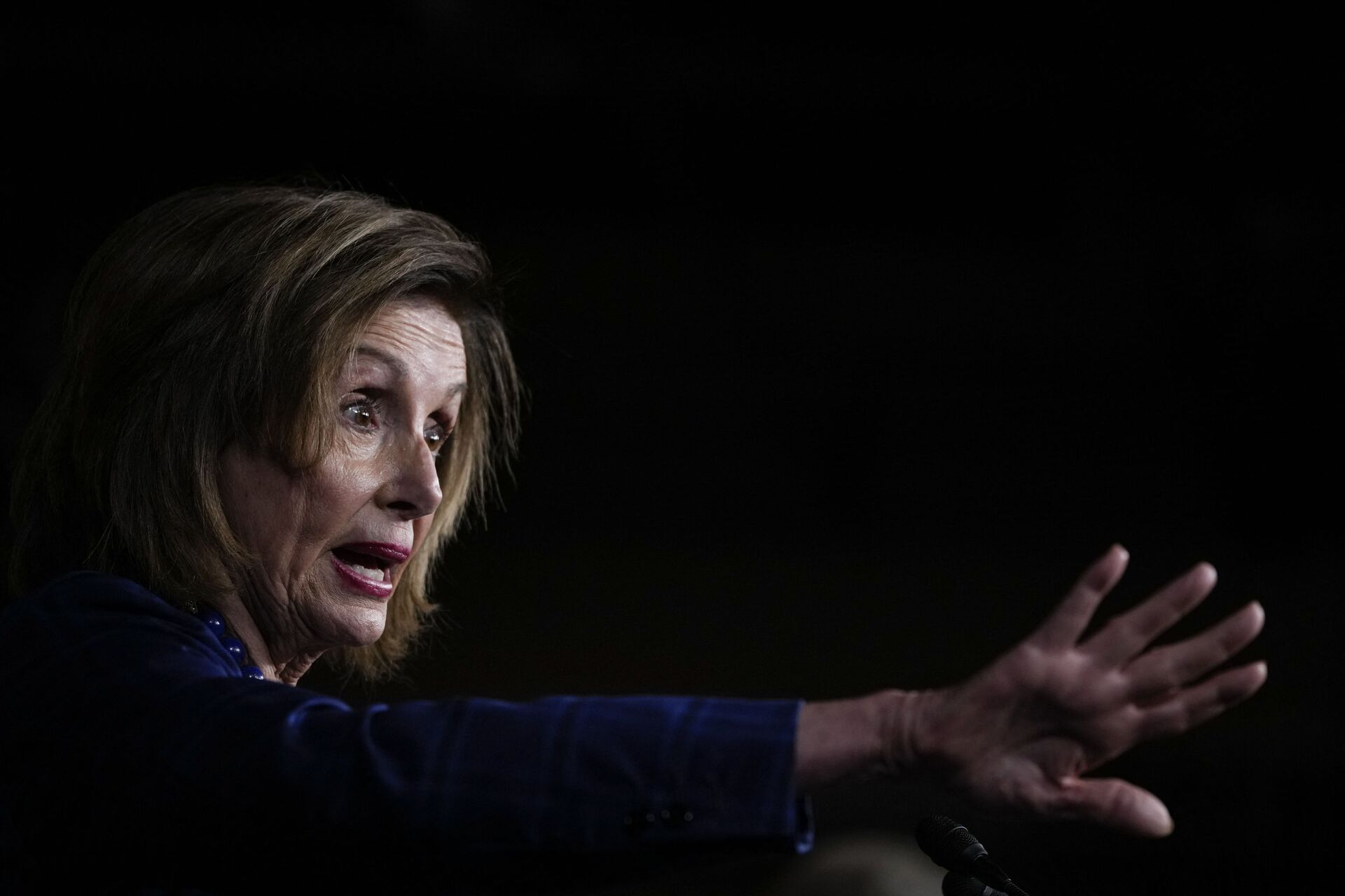US House Narrowly Passes $3.5 Trillion Budget Blueprint, Sets Deadline for Infrastructure Package
20:17 GMT 24.08.2021 (Updated: 22:08 GMT 24.08.2021)

© REUTERS / SARAH SILBIGER
Subscribe
The House of Representatives' Tuesday vote now paves the way for lawmakers to begin writing a safety net package for the $3.5 trillion infrastructure measure and guarantees a key September 27 vote on the infrastructure package, as well as push to strengthen the Voting Rights Act of 1965.
The US House of Representatives narrowly passed on Tuesday the blueprints for the $3.5 trillion budget plan that may soon pave the way for sweeping changes to the US' health care, education and tax laws.
The vote came down 220 for and 212 against after divisions among moderate and progressive Democrats earlier delayed proceedings. Officials had earlier balked at clearing the resolution without first voting on the $1 trillion infrastructure bill.
The Tuesday win for congressional Democrats, which also advanced the $1 trillion bipartisan infrastructure bill, also includes a key, nonbinding commitment for a September 27 vote.
Rep. John Larson (D-CT) remarked to NBC News that the Democratic win should underscore that one should "never bet against [House Speaker] Nancy Pelosi."
"Knowing the enormous amount of work that goes into something like this, and in the very narrow margins that we have, it makes her job even more extraordinary," the lawmaker said. "And she also takes all the heat for being the leader."

Speaker of the House Nancy Pelosi (D-CA) speaks during a news conference on Capitol Hill July 30, 2021 in Washington, DC. Pelosi and House Democratic leadership held the news conference to highlight their legislative agenda.
© AFP 2023 / DREW ANGERER
US President Joe Biden remarked during a Tuesday national address that the passages underscores that the US is one "step closer to investing in [Americans]," as well as "building an America that outcompetes the rest of the world."
A vote was previously expected to be held on Monday, however, the effort was trashed by a group of Democrats led by Rep. Josh Gottheimer (D-NJ) that wanted a separate vote to ensure that the bipartisan infrastructure bill would not be stalled in the chamber.
Efforts by House Democrats will enable US lawmakers to start mapping out a fuller legislation proposal to expand Medicare, family support programs and even divert funds to combatting climate change, among other initiatives. The effort will effectively work toward delivering on many campaign pledges made by Biden.
Funding for the new programs will be pulled from tax increases that will be implemented for the wealthy, a move that will signify a step backwards for the tax overhaul that was enacted under former US President Donald Trump.
While Republicans have largely supported the bipartisan infrastructure measure as it will help bolster the US economy amid the pandemic, many others within the GOP have opposed the additional trillions in spending. Critics have warned that the Democratic funding plans would spike inflation.
The Tuesday procedural motion also cleared the way for a vote on the John Lewis Voting Rights Advancement Act, which would strengthen parts of the Voting Rights Act of 1965 that had been earlier weakened by a pair of Supreme Court rulings. The measure would require states to seek federal approval before making certain changes to their voting procedures.



